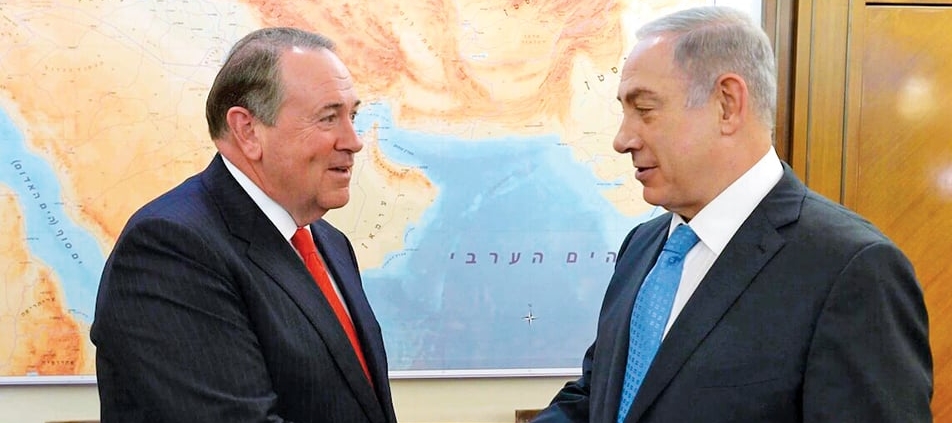Mike Huckabee’s Torah
In the Torah, as Rebekah’s family sends her off to marry Isaac, they offer her a striking blessing. Rather than the typical wishes we might expect for a young bride—health, happiness, and fulfillment—her family’s blessing takes on a surprisingly militaristic tone:
“And they blessed Rebekah and said to her, ‘O sister! May you grow into thousands of myriads; may your descendants seize (יירש) the gates of their foes.’” (Genesis 24:60)
The blessing begins with a wish for Rebekah to have countless descendants, a common and heartfelt hope in biblical times. Yet, this sentiment quickly transforms into something more aggressive: a vision of those descendants prevailing over their enemies and seizing property from within their gates.
Why would Rebekah’s family assume her descendants would have enemies? Her family were shepherds, not warriors. Yet they imagined adversaries living in fortified, gated communities. Perhaps this reflects an ancient prescience—an understanding that the future of Rebekah’s descendants, the Jewish people, would be fraught with conflict. The blessing, then, is both a wish for progeny and a recognition of struggle.
This ancient blessing also seems to reveal a complex, even unsettling, dimension of Jewish identity. The vision of descendants as conquerors may reflect a “shadow side” of the Jewish historical experience. Today, Rebekah’s descendants continue to face adversaries. Some read this blessing as a divine mandate not just to defend against enemies but to seize their territory.
Consider the modern context: Mike Huckabee, a former governor and nominee for U.S. ambassador to Israel, sees a flourishing Israel as a fulfillment of biblical prophecy. Rooted in verses like Rebekah’s blessing, Zionists, both Christian and Jewish, believe Israel should annex more land currently under Palestinian control, fulfilling the ancient promise for Rebekah’s descendants to “inherit the gates of their foes.”
This interpretation raises profound questions about the interplay between scripture and modern geopolitics. Huckabee’s vision reflects a broader trend among certain Christian Zionists who see the modern state of Israel as central to the second coming of Jesus. However, this view risks turning a poetic blessing into a justification for regional conflict.
The Torah, however, does not give us a one-dimensional message. Verses like Rebekah’s blessing seem to endorse triumph over enemies. However, the Torah also emphasizes the sanctity of life and the pursuit of justice. Deuteronomy reassures Israel that God will protect them from enemies, yet it also records God’s command for Joshua to conquer the land. This tension between defense and conquest runs throughout biblical history.
As we grapple with these ancient texts, we are left with hard questions: How do we balance security with morality? How do we teach our children to value peace in a world where enemies often arise?
For millennia, the Jewish people had no homeland to defend. Since 1948, the modern state of Israel has offered a place of refuge—but also a new set of challenges. How are we, Israel and the Jewish people together, heeding the mixed biblical messages?
Rebekah’s family offered an aggressive vision: to seize the gates of their enemies. Yet, the Torah’s broader message compels us to temper strength with restraint and aggression with justice. The blessing offered to Rebekah is a call to secure the Jewish people and their borders. As Jews, our highest aspiration is to seek peace and uphold the dignity of all people, even amidst conflict.
Rabbi Evan J. Krame






 Evan J. Krame was ordained as a rabbi by the
Evan J. Krame was ordained as a rabbi by the